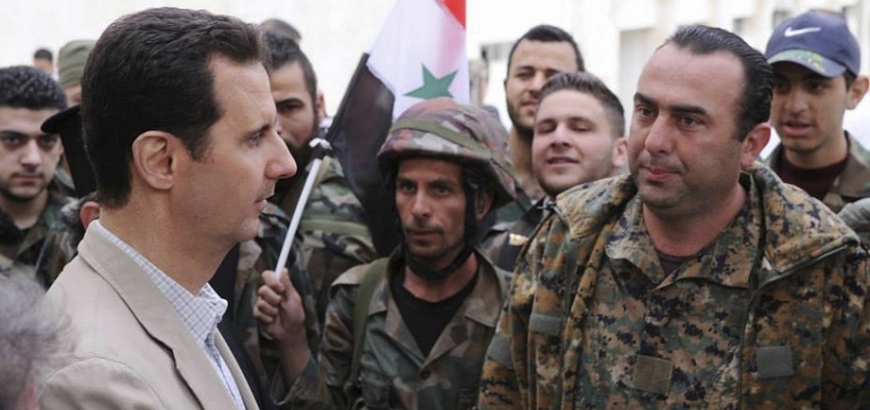Nabil Salah, a member of parliament in the regime government, has stepped in to uncover the fate of officers who fought with the regime and have subsequently ended up in Sednaya prison. By speaking out, Salah has opened the door on an issue about which the families of these officers have been silent for months, none bold enough to speak, out of fear of persecution by security forces.
Neither regime loyalists nor opposition members would have known the story of those officers had it not been for Salah pulling back the curtain on the issue for the first time, taking advantage of the “parliamentary immunity” granted to him. He has a large following with regime loyalists on social media, which could lead to major criticisms of the regime from his popular base if he is punished for revealing the issue of the officers imprisoned in the notorious Sednaya prison.
Based on the observations of loyalist reactions on social media carried out by Alsouria Net, many were surprised to hear of the regime arresting “good officers” (as the loyalists describe them) who have fought alongside them since 2011. Some asked, “What’s the story of these officers, and why were they imprisoned?”
In a post published on Facebook on Oct. 25, 2018, and also during a session of parliament, where Defense Minister Ali Ayyoub was present, Salah raised the issue of these officers. At the time, Salah did not say why they had been arrested, but he told the pro-Assad and pro-Hezbollah Lebanese paper Al-Akhbar some new details.
On Monday, the paper quoted Salah as saying that the officers have been under arrest for eight months and had yet to be sent to trial.
According to the paper, the charges against the commissioned and non-commissioned officers in Sednaya — known as the “human slaughterhouse” among Syrians — is that they were involved in prominent corruption cases, favoritism in appointments and financial embezzlement.
The newspaper also indicated that the number of arrested officers had reached 200, while regime loyalists said that the number of non-commissioned officers was about 350. The newspaper said that the officers “held university degrees and among them were those with seniority in the army in terms of ranks and positions.”
The newspaper said that “with their transfer to the Adra prison, first of all, the families fear that they will be scapegoats for the corruption behind which stood crisis merchants and malicious and vengeful reports.”
Salah told the paper: “They need to be transferred to the military courts under the supervision of the concerned judiciary rather than being sent to a security committee and being held for months.”
The regime did not merely arrest “loyal officers”—as loyalists call them—but the paper also quoted family members of the officers as saying that the regime had halted the salaries of the officers after they were arrested, which has put their families in major financial difficulties which they are unable to cope with.
According to the newspaper, some of the imprisoned officers in Sednaya have been in the army for 30 years, saying that they are now “languishing in prison, deprived of their rights.”
The acknowledgement of the presence of these prisoners in Sednaya is a rare case of regime loyalists discussing the ill-treatment occurring in Syrian prisons. Since the beginning of the revolution in 2011, reports about what has occurred to regime opponents in terms of violations and ill-treatment in prisons—with thousands of them killed—has been denied and rejected.
The Sednaya prison (30 km north of Damascus) is considered one of the most infamous prisons in Syria, with the Amnesty International group calling it a place in which the regime has butchered prisoners, with prisoners describing methods of torture including being scalded with hot water and beaten to death. The prison has been called the “human slaughterhouse.”
A previous report by the group said that Assad regime had carried out secret mass executions by hanging 13,000 prisoners, most of them opposition civilians in the Sednaya prison over the five years since the protests erupted.
This article was translated and edited by The Syrian Observer. Responsibility for the information and views set out in this article lies entirely with the author.


